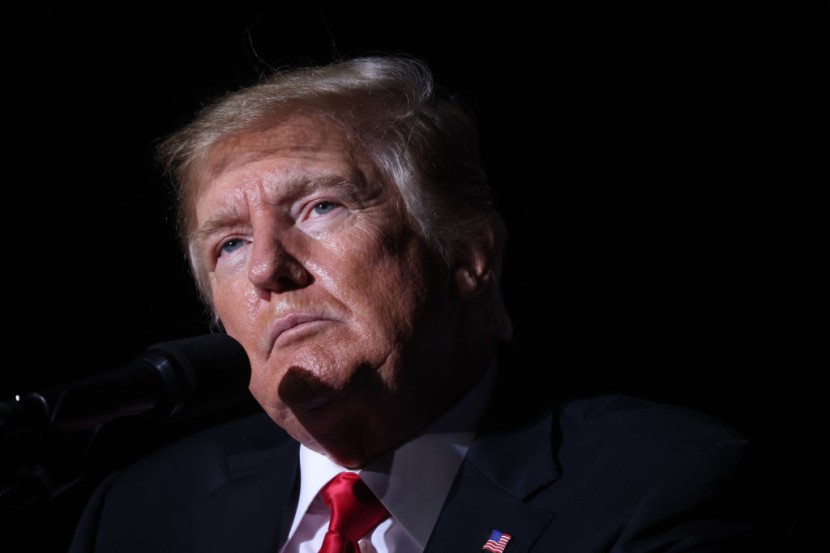
In the face of a trio of civil lawsuits accusing him of fomenting the Capitol brawl last year, a federal court on Monday questioned former President Donald Trump's claims of "total immunity."
U.S. Attorney General Jeff Sessions spoke during a hearing. District Judge Amit Mehta looked suspicious of Trump's claim that the lawsuit filed by Democratic members and US Capitol Police officers should be dismissed because a president's words and conduct while in the office are immune from civil action.
Judge mulls whether Trump's silence on Jan. 6 could be seen as approval
Trump's lawyer, Jesse Binnall, said he couldn't conceive of a hypothetical case that would fall outside the former president's immunity claim. Last year, lawsuits were brought against Trump, individuals of his closest circle, and organizations of his followers. Rep. Eric Swalwell (D-Calif.) introduced one, while Rep. Bennie Thompson (D-Miss.) introduced the other. Thompson is the chair of the House select committee investigating the Jan. 6 incident, and he was joined by ten of his Democratic colleagues.
The United States has filed a third lawsuit. James Blassingame and Sidney Hemby, Capitol Police officers, suggest that Trump should be held accountable for the rioters' damages. Trump's personal attorney Rudy Giuliani, his son Donald Trump Jr., Rep. Mo Brooks (R-Ala.), and the right-wing Proud Boys and Oath Keepers groups are among the other defendants, The Hill reported.
Trump's attorney, Jesse Binnall, pushed back against Mehta's questions, suggesting that Trump can't possibly incur legal penalties for activities he didn't conduct. The discussion might be the most important in an explosive - and lengthy - hearing on three lawsuits brought against Trump for his acts leading up to and on Jan. 6.
Two of the lawsuits were made by Democratic members of Congress, while the other was launched by a pair of Capitol Police officers who were hurt during the altercation on Jan. 6. Although the lawsuits have been on file for more than nine months, Monday's hearing was the first meaningful one on the topics.
Mehta is concerned with deciding whether to allow the cases against Trump to proceed. He is essentially considering whether the allegations against the former president are believable and legally sound.
During the hearings, Trump's lawyers claimed that Trump's immunity from civil claims for his activities as president was extremely wide, arguing that practically every comment Trump made was "immune.", as per Politico.
Trump asks judge to toss Jan. 6 lawsuits
On Monday afternoon, lawyers for former President Donald Trump, his lawyer Rudy Giuliani, and Rep. Mo Brooks urged a federal judge to reject charges that he incited the Jan. 6 Capitol attack, as well as lawsuits filed by Democratic House members and police officers.
The judicial battle is just one way to hold the former president accountable, more than a year after hundreds of Trump supporters marched on Congress. Democratic legislators, including Reps. Eric Swalwell and Jerry Nadler referenced an 1871 legislation against political intimidation enacted to combat the white supremacist Ku Klux Klan.
The House of Representatives impeached Trump, and the Senate acquitted him on a charge of inciting the disturbance, which a House select committee is also investigating. Swalwell's complaint contains similar accusations against Trump supporters such as Giuliani, Trump's oldest son Donald Trump Jr., and Republican congressman Brooks, who all spoke at the event on Jan. 6.
Brooks has pushed back against Swalwell's charges, claiming that his statements at the event on Jan. 6 were made in the course of his duties as a member of Congress. The Westfall Act shields government workers from being sued for conduct made in the course of their employment. Trump and his co-defendants had maintained that their comments before the assault on Jan. 6 were protected political speech under the US Constitution's First Amendment. Constitution, Daily Mail reported.
Related Article : Jan.6 Anniversary: Republicans, Democrats Disagree For a Year While Americans Remain Divided Over How Capitol Riot Unfolded








